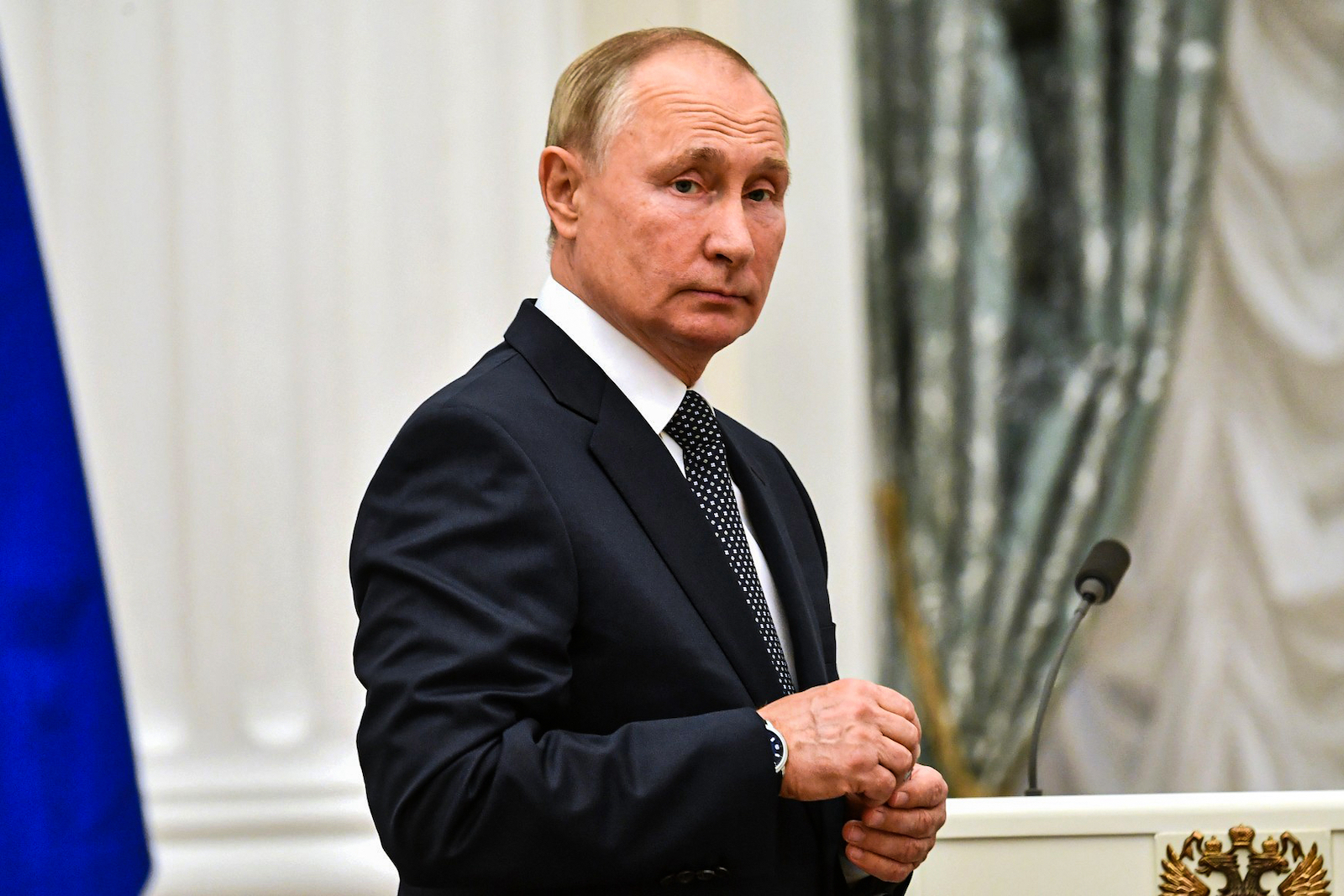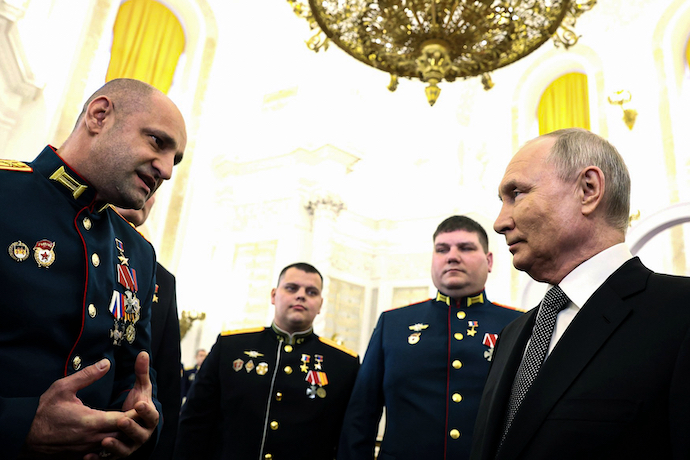
Putin is Quietly Teasing a Ceasefire in Ukraine
In the ongoing Russia-Ukraine war, discussions about a possible ceasefire and the shape of the post-war landscape are gaining momentum. Recent developments have rekindled hopes for peace negotiations. Notably, Russian President Vladimir Putin has expressed interest in engaging in peace talks since September, putting forth conditions reminiscent of those he proposed the previous year. This shift indicates a potential opening in the diplomatic impasse, raising questions about the feasibility of these conditions and their implications for the future of Ukraine and the region.
The New York Times reported that Vladimir Putin is open to ending hostilities, provided Russia retains control over the territories it currently occupies. This stance, however, encounters substantial hurdles. Ukrainian President Volodymyr Zelensky remains steadfast in his commitment to regain all territories annexed by Russia. U.S. officials have expressed skepticism regarding Zelensky’s acceptance of a ceasefire on such terms, underscoring the complexity of reaching an agreement that satisfies both parties.
The notion of a ceasefire in the context of the Russia-Ukraine conflict means stopping active military engagements and transitioning to peace talks. However, the intricate web of geopolitical stakes, historical disputes, and nationalistic sentiments renders this an arduous task. A potential ceasefire agreement between Russia and Ukraine would demand intricate and sensitive negotiations. It must tackle immediate military issues, including troop withdrawals and the cessation of hostilities, as well as address broader political challenges. Given the profound mistrust between the two countries, the involvement of international mediators and guarantors would likely be essential to broker and uphold such an agreement.
In the aftermath of the conflict, Ukraine and Russia would each confront daunting challenges unique to their circumstances. Ukraine’s immediate focus would involve massive reconstruction, facilitating the return and resettlement of displaced citizens, and addressing the profound psychological impacts of the war. On the other hand, Russia would grapple with significant geopolitical and economic issues, such as navigating the complexities of international sanctions and striving to repair strained relationships with the global community.

Should a ceasefire be reached, both sides would need to make substantial concessions, with territorial issues being particularly sensitive. Ukraine might have to relinquish some degree of control over disputed territories in the Donbas region or Crimea. In contrast, Russia could be required to scale back its influence in these areas. Additionally, Ukraine may pursue security guarantees from Western nations to deter future conflicts. In exchange, Russia could seek commitments from Ukraine to refrain from joining military alliances it views as antagonistic, such as NATO. These concessions would be pivotal in shaping the post-war landscape.
Economic recovery support for Ukraine is expected to be a crucial element of the negotiations. Russia, currently under the pressure of international sanctions, might push for their reduction or elimination as part of its concessions. Additionally, both parties would need to confront accusations of war crimes and human rights abuses. Addressing these serious allegations could involve international legal platforms or forums, underscoring the complexity and breadth of the peace negotiation process.
The long-term implications of a post-war reality in Ukraine and Russia are profound. It would reshape the geopolitical landscape of Eastern Europe and potentially lead to a new era of international relations. Economically, both nations would have to navigate a path of recovery and potential collaboration.
The war has triggered a range of reactions both within Russia and globally. A significant and unprecedented development is the rise of a women-led protest movement in Russia, particularly noteworthy in a nation where public dissent is usually stifled. This movement is largely driven by Russian women, especially the wives and mothers of the 300,000 men conscripted in 2022, who are actively voicing their opposition to Russia’s military involvement in Ukraine. Their resistance has manifested in public demonstrations and the publication of open letters, directly challenging the official state narrative. This burgeoning grassroots movement marks a notable shift in Russian society, reflecting an increasing willingness to openly contest government policies.
Russia is scheduled to hold its presidential elections on March 17, with Vladimir Putin anticipated to secure a substantial victory. Despite this expectation, there have been efforts by opposition figures to challenge Putin’s leadership. One such challenger, Yekaterina Duntsova, a former TV journalist, faced a significant setback when the central electoral commission disqualified her candidacy. The commission cited purported shortcomings in her application, a decision that was made unanimously.
Duntsova’s campaign centered on promises to end the war in Ukraine and release political prisoners. Her campaign likely resonated with the women-led protest groups, as part of her agenda focused on bringing Russian troops back home. The disqualification of Duntsova is seen by Putin’s critics as indicative of a tightly controlled electoral process, designed to preclude any genuine opposition. This is particularly significant given that this is the first presidential election since the outbreak of the conflict 22 months ago, highlighting concerns over the state of democracy in Russia.
This also comes at a time when Russian opposition politician Alexei Navalny went missing for two weeks but was tracked down to a penal colony north of the Arctic Circle. Putin is taking care to keep him out of the way.
Since Putin’s rise to power, the Russian state has systematically dismantled grassroots movements and taken control of media outlets that previously might have offered a platform for such dissent. The government’s recent actions have further criminalized anti-war sentiments, applying severe penalties for protests against the war.
The ongoing scenario illustrates the complex interplay between internal dissent and international diplomatic efforts. Key developments such as the emergence of a women-led protest movement in Russia, forthcoming elections, and ongoing discussions about a potential ceasefire and the post-conflict landscape underscore the multi-dimensional character of the conflict. These events highlight both the challenges and possibilities for resolving the conflict and significantly influencing the future geopolitical dynamics of Eastern Europe. Each aspect, from domestic opposition to global negotiations, plays a crucial role in shaping the path towards resolution and the broader regional implications.

